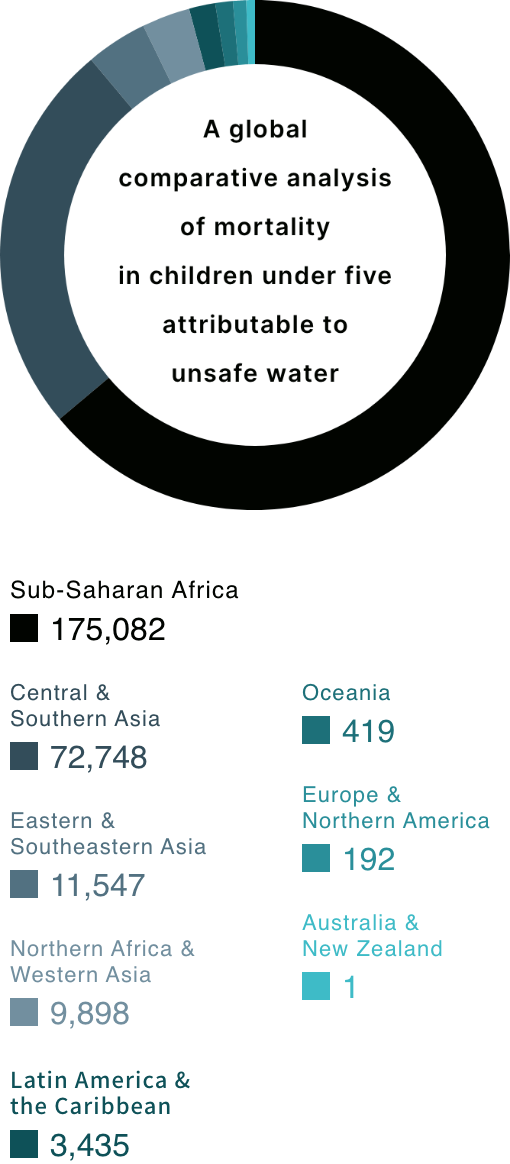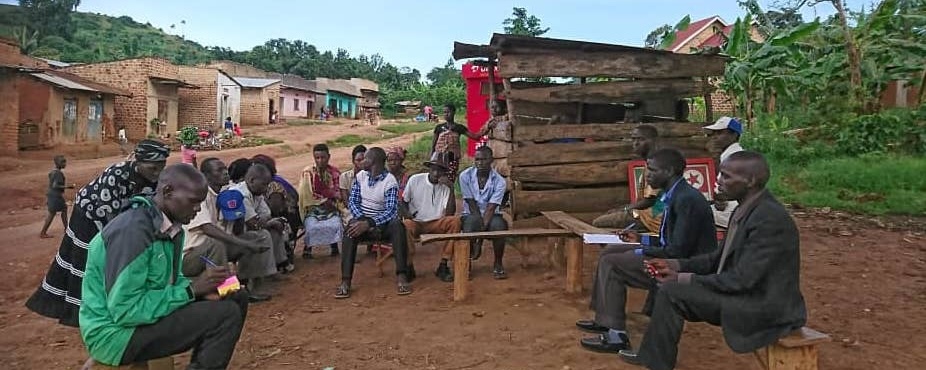
Water Issues in Africa
In recent years, Africa has experienced remarkable economic growth.
However, in Sub-Saharan Africa,
nearly 400 million people still lack access to safe water. One of the key reasons for this is the difficulty of management shared water facilities,
such as hand pumps and public taps. Among the various components needed to support sustainable management,
one of the most critical is "the effective collection of water fees".
-
400 Million People Lack Access to Safe Water

In sub-Saharan Africa, 400 million people, both in urban and rural areas, still do not have access to clean water. This situation has seen little improvement over the past decade. In rural areas, however, many rely on unsanitary ponds, and women and children often walk long distances to fetch water. This not only affects their health, but also limits children’s access to education and impacts daily life in many ways.
-
Health issues from Contaminated Water
Contaminated water sources, often shared with wildlife, contribute to widespread cases of diarrhea and can be fatal, especially among children.
-
Daily Long-Distance Water Collection
In many cases, children and women dedicate several hours each day to collecting water from distant sources, which limits their opportunities to attend school or engage in work.
-
Risks of Sexual Violence and Wildlife Encounters
Children and women who go to collect water face risks of sexual assault as well as attacks by wildlife and snakes along the way.
Each day, more than 800 children lose their lives due to unsafe water


- Source:WHO estimates of burden of disease attributable to unsafe water, sanitation and hygiene (WASH) in 2019 (as of December 2022).
-
-
Lack of Repair and Maintenance Operations

With support from the government and international aid agencies, Uganda has made steady progress in improving water infrastructure. Hand pump boreholes are widely used in rural areas, and public taps, community-managed piped systems, are being introduction in peri-urban regions.
Over 60,000 hand pumps have been installed nationwirde. However, more than 10,000 are reported to be non-functional. Repairs often take several months, and a study shows that over half of these systems are not working.These issues highlight persisitent challenges in the operation and maintenance of water supply facilities.
-
Insufficient Water Fee Collection
Due to inadequate collection of water fees, the necessary funds for maintenance and repairs are often lacking. As a result, many facilities experience prolonged delays in repair or remain out of service for extended periods.
-
Frequent Breakdowns of Water Facilities
Limited access to high-quality spare parts, along with varying levels of skill and experience among local mechanics, often leads to inconsistent repairs and recurring equipment failures.
-
Community Dependence on External Support
Water facilities are often installed and repaired through external aid, which limits communities’ opportunities to take full responsibility for their operation and maintenance.
-
-
Failures in Water Fee Collection
due to "Systemic Issues"
Water facilities installed by governments or international organizations are often managed through community-based self-governance. Likewise, public water points installed by individuals are generally maintained according to standardized manuals. However, these manual-based fee collection systems often fall short, resulting in insufficient recovery of usage fees.
-
Vulnerability of Cash-Based Fee Collection
Cash-based fee collection is highly dependent on the oversight of the responsible personnel, making it susceptible to fraud due to intentional misconduct or management errors.
-
Unfair Fee Collection System
Manual fee collection conducted by designated personnel lacks enforceability, making it susceptible to free riders and fostering a sense of unfairness among users.
-
Lack of Transparency in Fund Management
A lack of transparency regarding the amount of water fees collected and how the funds are used leads to distrust among residents and reduces their willingness to pay.
-

SOLUTION
Implement SUNDA
to establish a sustainable
operation and maintenance framework
for water facilities
By combining smart meters for water facilities with an online payment system,
a “pay-as-you-fetch” fee collection model is created. Installing SUNDA
on water facilities ensures continuous and reliable fee collection.
Furthermore, by reviewing and improving maintenance operations,
a sustainable management system can be established。
CONTACT
Together with SUNDA,
let's build Africa’s future
With innovative technology, we aim to create a society
where everyone in Sub-Saharan Africa can have access to safe water.
We invite you to join us in building this future together.


